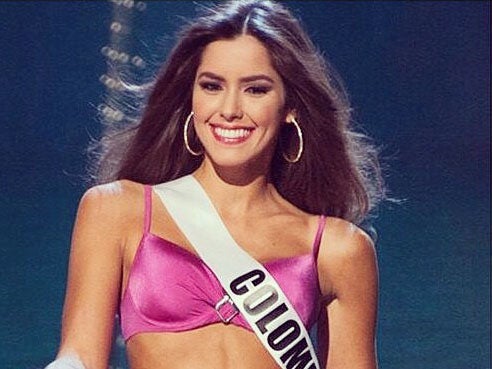The Independent's journalism is supported by our readers. When you purchase through links on our site, we may earn commission.
Miss Colombia: Miss Universe winner Paulina Vega and Colombia's murky culture of OTT beauty pageants
A culture of entrenched hierarchy and fierce competition dominates Colombian beauty pageants

Your support helps us to tell the story
From reproductive rights to climate change to Big Tech, The Independent is on the ground when the story is developing. Whether it's investigating the financials of Elon Musk's pro-Trump PAC or producing our latest documentary, 'The A Word', which shines a light on the American women fighting for reproductive rights, we know how important it is to parse out the facts from the messaging.
At such a critical moment in US history, we need reporters on the ground. Your donation allows us to keep sending journalists to speak to both sides of the story.
The Independent is trusted by Americans across the entire political spectrum. And unlike many other quality news outlets, we choose not to lock Americans out of our reporting and analysis with paywalls. We believe quality journalism should be available to everyone, paid for by those who can afford it.
Your support makes all the difference.Paulina Vega was crowned Miss Universe at the 63rd pageant in Miami to smiles and applause. But getting there won't have been easy for her, as Colombia has a reputation for a culture of cut-throat beauty pageant competitions. Here's a bite-sized guide.
Powerful elite
The slogan of Miss Universe, "confidently beautiful", couldn't be more appropriate for Vega. In her Miss Universe profile, it mentions that she is the daughter of cardiologist Rodolfo Vega Llamas and his wife Laura Dieppa, and granddaughter of the legendary tenor Gatsón Vega. She is also the grandaughter of regional beauty queen Elvira Castillo. This, many argue, put her on course to breeze through the contest.
Miss Colombia has been criticised for featuring mostly "light-skinned daughters of prominent families". The New York Times described the competition - which sees regional champs compete for the chance to go to Miss Universe - as "a playground for the global elite with $475-a-night boutique hotels". While the pageant puts a major stress of social responsibility and the winner will visit troops and help charitable causes, the idea that the competition bridges Colombia's poverty gap has come under some scrutiny.
Starting young
Vega started modelling at the tender age of eight - but getting the pageant bug at a young age the norm in Colombia. Former regional champion Juliana Perez was in her mid-teens when she wanted to be a beauty queen. "I have been interested in beauty pageants since I was 15 years old," she told the Bogota Post. It's not unusual for girls to compete in small pageants from around the age of five.
Beauty pageants are seen has one of the major viable ways for women to have a future in Colombia. For example, entering the National Beauty Competition in 1996 helped TV presenter Pilar Schmit Fernandez launch a successful career as a journalist.
Schmit Fernandez said: "It probably would have taken me longer to get into the media.
"The national beauty contest made me famous, but I'm also a journalist, which I think helps. It also takes discipline and hard work to do a good job."
So Vega, who attends business school in Bogota, will be able to capitalise on her title in whatever area she chooses. She said: "It gives me independence. I want to have my own company." With such prestige behind the title, Vega will have had a great deal of competition at every stage.
Culture of pageants
Beauty pageants are attributed with bringing together communities, and there are hundreds of regional competitions - and even prison pageants. "While the inherent objectification of the contests and the values they convey to young women often provoke outrage and ridicule elsewhere, in the Colombian context the issue is more complicated," says Carl Bower, who photographed many of the pageants.
"The millions who pack stadiums and follow dozens of national contests on live television often have a vicarious relationship with the queens, clinging to the Cinderella fantasy of magically transcending poverty."
Plastic pressure
While Vega has not had plastic surgery - and the Miss Colombia competition forbids it - there is nevertheless a massive pressure on beauty queens to look perfect. The contestants are under constant scrutiny, not only by the judges but by the fans, too. Natalia Navarro, Miss Colombia 2009, sparked a campaign to get her "beak nose" operated on before Miss Universe. Navarro refused.
"They have asked me and I understand that I can always be better," she said, "but I prefer things that are natural. If we all start to get plastic surgery then we will all look the same and that I do have problems with. I won Miss Colombia with this nose and I am capable of doing anything just like this."
Join our commenting forum
Join thought-provoking conversations, follow other Independent readers and see their replies
Comments